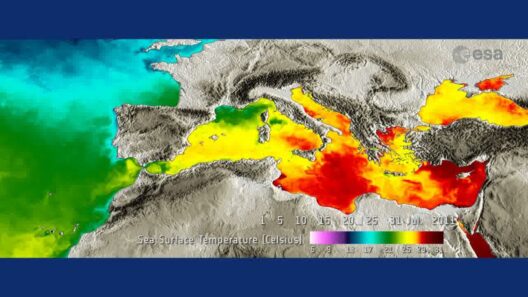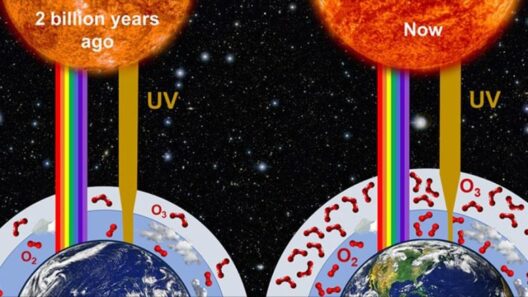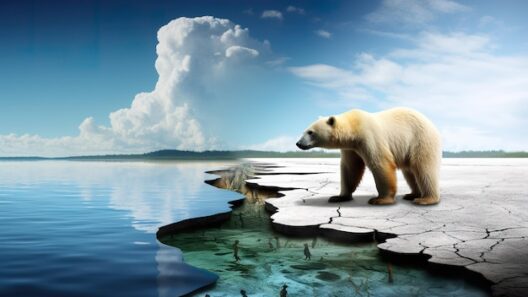Nature operates in a meticulously choreographed equilibrium, where the intricate relationships between organisms and their environment create a tapestry of life. However, this fragile balance is increasingly threatened by the forces of global warming, a phenomenon that reverberates through the Earth’s biomes, instigating profound changes. What if we could follow the ripple effects of our actions and see how they influence distant ecosystems? Would it instill a sense of responsibility in us to advocate for sustainability? The ramifications of our current trajectory deserve scrutiny, as they challenge not only the stability of various habitats but also our collective future.
The Earth’s biomes—vast ecological areas characterized by specific climates, flora, and fauna—each play a vital role in maintaining the biosphere’s overall health. From the arid deserts to lush tropical rainforests and frigid tundras, these biomes harbor unique ecosystems that are uniquely adapted to their environments. However, the escalating climate crisis is beginning to unravel these ecosystems, revealing the intricate threads binding them together. As global temperatures soar, we find ourselves at a precipice where the consequences of climate change are no longer abstract theories but tangible challenges facing the planet.
Increased greenhouse gas emissions are primarily responsible for rising global temperatures. The resulting shifts in climate patterns disrupt established weather systems that have governed biomes for millennia. Take the polar regions, for instance, where thermal expansion and melting arctic ice pose grave threats to biodiversity. Species such as polar bears and seals rely on sea ice for their hunting grounds. As these habitats diminish, so too do their chances for survival, birthing a cascade of ecological repercussions. The disappearance of apex predators often results in overpopulation of their prey, leading to imbalances that can devastate entire food webs.
As we venture further south, temperate forests that once flourished are beginning to experience profound transformations. Changes in precipitation patterns, exacerbated by global warming, have initiated a startling shift in tree species composition. Notably, as it gets warmer, some species like the oak are increasingly replaced by more heat-tolerant trees, such as pines. This phenomenon, often referred to as “species migration,” suggests a looming homogenization of forest ecosystems, which could reduce biodiversity and destabilize the myriad benefits these ecosystems provide, from carbon sequestration to habitat for countless other organisms.
The savannas are not spared either. These grassland ecosystems play a critical role in carbon storage and filtration of freshwater resources. However, as temperatures continue to rise, drought frequencies are increasing, which diminishes the lush grasses that sustain herbivores and the carnivores that prey on them. A playful query emerges: with fewer grazing animals and more drought, could we be steering our ecosystems toward deserts? This challenge evokes a need for sustainable land management practices that can buffer the effects of climate fluctuations.
Tropical rainforests, often termed the lungs of the Earth, are witnessing devastation as climate change intensifies. The interplay between global warming and deforestation exacerbates already vulnerable conditions. Rising temperatures lead to increased evaporation and a reduction in rainfall, resulting in droughts that render these vibrant ecosystems even more susceptible to wildfires. It is a paradox: often celebrated as the pinnacle of biodiversity, these forests now stand at a precipice, risking severe loss of plant and animal species that are irreplaceable. The very essence of these biomes is at risk, potentially leading to massive species extinction events.
Oceanic biomes, too, are grappling with the fallout from climate change. The repercussions of global warming extend far beyond the terrestrial landscape, as marine life suffers from coral bleaching driven by rising sea temperatures. Coral reefs, which serve as critical habitats for myriad marine species, are witnessing alarming degradation due to thermal stress. Acidification resulting from increased CO2 levels further compounds the issue, undermining the structural integrity of these underwater ecosystems. As coral reefs falter, so does the multitude of species that rely on them, threatening the entire marine food web and jeopardizing the livelihoods of communities dependent on fishing.
However, amidst this somber picture, there lies an opportunity for empowerment and resilience. We possess the ability to influence the discourse surrounding climate change. An essential aspect of mitigating these challenges lies in education and advocacy. By fostering awareness about how global warming affects our planet’s biomes, we can motivate collective action. Understanding that each biome is interconnected illuminates the path for policies that promote environmental stewardship, conservation, and restoration efforts.
Sustainable practices, such as reforestation, sustainable agriculture, and marine conservation, can significantly mitigate the impacts of climate change. Advocacy for renewable energy sources and reducing carbon emissions is paramount. The challenge is monumental, but if we nurture a sense of urgency and responsibility, we can galvanize broader support for innovative solutions that preserve our planet’s delicate balance.
In conclusion, the effects of global warming on Earth’s biomes present a multifaceted challenge that transcends borders and species. The question remains: can we rise to this pressing challenge and initiate a paradigm shift in how we interact with nature? Our actions today will resonate in ecosystems for generations to come. It is our privilege and responsibility to protect these invaluable biomes that sustain life on Earth. The time for action is now. Nature’s fragile balance hinges on our choices, and the future of our planet depends on our collective resolve to safeguard it.







